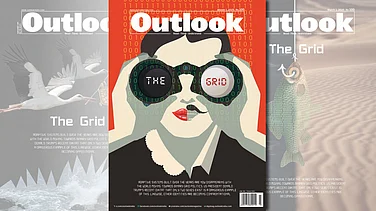God knows who that fortunate, wise man was—an emperor, a sultan, a badshah, a shehanshah, a king, a crown prince, or for that matter, a holy man, an ascetic, a hermit, a peer-faqir or an ancestor of the Pandavas and Kauravas? The man who first set foot on these blessed banks of the Yamuna and resolved, in some auspicious moment, to set up a magnificent city here? Who, indeed, vowed to infuse life into this many-splendoured earth to keep it ticking and illuminated at all times, with all its lights and leaves, for centuries to come? So that the first draft would be echoed many times in its vicinity and beyond, in ever-new Delhis to its north and south, to its east and west, all teeming with life, throbbing with exuberance! So that the resplendence of one Delhi would spawn reflections all around. History stands witness to the fact that Delhi has never been shorn either of grandeur or of ruination. Chasing and vanquishing marauders through the corridors of time, soldiers then settled and turned into civilians ever so many times, unknown soldiers of unknown provenance, all with a part in this Mahabharat of endless reruns.
August 15, 1947. The world is out on the streets. Excitement is writ large on all faces. Here is Connaught Place, the regal square in the heart of Delhi. A posse of mounted police passes by: weaving through that carpet of clip-clop sounds, wafting in the happy breeze, the voices of revellers. “Look, look,” somebody shouts, pointing to the marching cavalry, but is barely audible. Here is Madras Hotel, and then Marina, and there라이브 바카라 Khadi Bhandar, where the tricolor is selling by the dozens: a new talisman! The flag already flutters atop the bungalows at Lady Hardinge Road, and illuminated pots hang on the walls a la Dipawali. It라이브 바카라 like that all along, from the domes of Dais Square, Foch Square, Havelock Square to the rows of diyas in front of the houses in Gole Dak-khana, Gurudwara Raqabganj, the church…everywhere. It라이브 바카라 not an ordinary day, after all.
Then comes the Kohinoor, the dome of domes…the Viceregal Lodge (yet to assume life as Rashtrapati Bhawan). Now our flag will fly here. And what of the Union Jack that fluttered on the Red Fort for decades? The British will pull it down and take it back with respect. “Goron apne gharon ko lauto/ab yeh desh hamara hai, ab yeh raaj hamara hai (Englishmen, return home/ now this is our country, our rule),” kids on a tonga shout. “Hindustan zindabad/Jai Hind,” comes the chorus from a horse-carriage in hot pursuit.
North Block looms, and South Block, and that dip in the imperial tarmac. “Hey, my grandpa라이브 바카라 office,” says a boy, proudly. “Bang opposite my father라이브 바카라,” says another, on cue. Fountains spangled with colour and light evoke a round of patriotic pidgin. “Up up hai Gandhi sachcha/Down down hai toady bachcha (The truth of Gandhi has won, down down with the toadies!),” a youngster yells. And then an imprecation, from a little girl: “Toady bachcha haay haay.” She gets a dose of gentle admonition from her mother. “We should not wish ill of anybody today. It라이브 바카라 an auspicious day for our country.”

A sea of humanity presses on towards Dariba. They will be both the ruler and the ruled now. In the melee, I suddenly find myself sprawled on the footpath. Did I get up on my own, or was I helped up? Suddenly, a woman is in labour pain. Some women take her to a corner and shield her with curtains. Shrill cries of a newborn…the first free child of a free India! A few yards away, the march halts, people huddle around two lads. A boy of 16 or 17 with a dirty rag tied around his locks, one shirt-sleeve hanging from an armless shoulder. His younger companion, barely 10, is beating a dhol. The song has no beginning or end. It라이브 바카라 an incantatory answer to the question writ on everyone라이브 바카라 forehead: Balle balle Jawaharlal, aapne kar diya kamaal/Dharti phaad Punjab ki, hamein de diyaa ek rumaal ki aankhen poncho (What a feat, Jawaharlal/tearing asunder the soil of Punjab/you weave a kerchief for us to wipe our tears).”
I’ve probably never seen such a crowd in Delhi since that day. All of India was right there, in congregation. People of every stratum of society, age, attire, race, kasba, town, city, from near and far. Street vendors lined the streets, as though azadi was meant to be an excuse to gorge on sweets. Laddoo, motichoor, kalakand, besan ki tukriyan, petha, gulabjamun, balushahi murunde, halwa-puri…what was it that was not available that day? Tricolours flew high out of each mound of sweets. Each man was like a celebratory sweet that day, with a flag rising from his heart. The yoke of slavery was gone. Each one on the street was a free citizen, like the next, and the one next. Pawned for centuries, their self-esteem had been redeemed by Gandhi the Mahatma.
(Translated excerpts from Sobti라이브 바카라 recollections of the first I- Day celebrations in the capital.)
The author is an eminent Hindi writer














